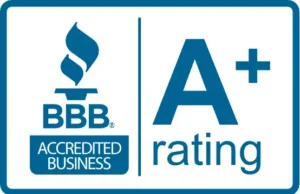Currently, Synchrony offers low monthly payments and many financing options. You can have your home repaired now and pay later with one of Synchrony's six monthly payment programs.
Home elevation has become an increasingly important consideration for residents in Ace, Polk County, particularly as weather patterns and flooding risks continue to evolve. This process involves raising an entire structure above its current foundation level to protect against water damage and comply with updated building codes. For homeowners in this area, understanding the benefits and requirements of home elevation can be crucial for long-term property protection.
Polk County residents face unique challenges when it comes to water management and flood protection. The region’s topography and weather patterns can create situations where traditional foundation levels may no longer provide adequate protection. Furthermore, updated FEMA flood maps and local building codes often require homes in certain areas to be elevated to specific heights. By raising their homes, Ace residents can significantly reduce the risk of flood damage while potentially lowering flood insurance premiums.
Additionally, home elevation can increase property values and improve overall structural integrity. When executed properly, this process not only protects against water damage but also creates opportunities for additional living space underneath the elevated structure, such as covered parking or storage areas.
The elevation process begins with a thorough assessment of the existing structure and foundation conditions. Professional contractors evaluate the home’s construction, soil conditions, and local elevation requirements to develop a comprehensive plan. This initial phase is critical, as it determines the most appropriate lifting method and foundation system for each specific situation.
During the actual elevation process, specialized hydraulic jacks and steel beams are used to carefully lift the entire structure. Once the home reaches the desired height, a new foundation system is constructed underneath. This may involve various foundation types, including pier and beam systems, block and base foundations, or other engineered solutions depending on local soil conditions and building requirements.
When considering home elevation in Ace, selecting an experienced residential foundation contractor is essential for project success. Allied Foundation specializes exclusively in residential services, providing focused expertise in home elevation projects throughout Polk County. Their residential-only approach ensures that homeowners receive dedicated attention and specialized knowledge tailored specifically to residential foundation needs.
The complexity of home elevation requires contractors with extensive experience in residential foundation work, proper licensing, and a deep understanding of local building codes and soil conditions. Working with specialists who focus solely on residential projects ensures that homeowners receive the most appropriate solutions for their specific needs, rather than generic approaches that might be used for commercial applications.
Proudly Serving Ace for over 40 years!


